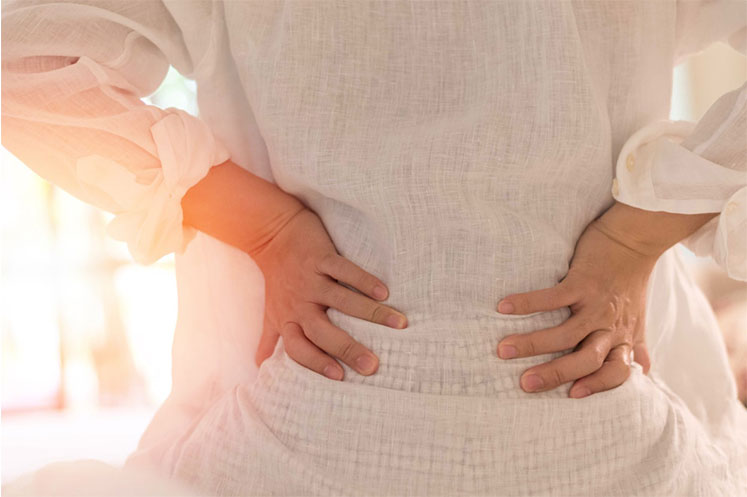Do you ever feel a surge of pain in your lower back? This could happen for various reasons and can even be caused by different parts of your body. Pain that originates underneath the ribcage and towards the bottom of your back can be a sure sign that your back needs repair; or, it could be a sign that you are dealing with some kidney issues. How do you tell the difference between kidney pain vs. back pain?
Kidney health specialist Dr. Gura uses the right tools and procedures to help patients determine whether their pain is coming from the back or the kidneys. Since the kidneys reside in the back of the body, it can be easy to mistake the origin of the pain. Below, you’ll find some tips to help you figure out where your pain is coming from.
Back Pain Explained
Back pain could stem from the muscles, nerves, or bones that make up your back. Damage can occur on a structural level, causing pain to radiate throughout your body. This is especially true if the source of your back pain comes from the nervous system, as pain in the nerves can travel down to your legs and feet.
If a strained muscle causes the pain in your back, you will likely feel an ache. This dull pain is usually felt on one or both sides of the back, depending on which muscle gets damaged. However, nervous system pain feels like a sharp, shooting pain that typically affects one side of your body at a time.
Conditions that Improve or Worsen Back Pain
Another way that you can start to tell the difference between back pain and kidney pain is to figure out what solutions relieve your pain. When it comes to chronic back pain, especially nervous system pain, it can be incredibly difficult to find relief. Oftentimes, chronic nerve pain requires long-term alternative treatments, such as physical therapy, massages, and even acupuncture, to provide relief. Back pain also tends to feel worse when you’re moving around.
Kidney Pain Explained
Using what you now know about the different ways to identify back pain, you can start to understand how kidney pain is different. The reason it can sometimes be hard to distinguish kidney pain vs. back pain is that the kidneys are located in the lower back, in the same area where you might experience nerve or muscle pain. But the causes, symptoms, and solutions for kidney pain are much different.
Kidney pain is felt on either side of the spine, on your lower back near the hips. Usually, kidney pain only affects one side of the body at a time. If the pain is due to an infection, you will feel a constant dull ache.
It is also possible that you are dealing with kidney stones. If this is the case, you should be able to identify your pain as sharp and severe. Patients with kidney stones often report having a hard time taking deep breaths, as it increases the sharp pain that often leaves people winded. The pain can radiate to your abdomen.
Conditions that Improve or Worsen Kidney Pain
Moving around will not affect the pain. It likely won’t provide relief, but it will not worsen the symptoms either. In most cases, nothing you do will get rid of the pain until your doctor or specialist properly treats your kidneys.
Kidney pain is also accompanied by several other symptoms, including nausea, feverishness, vomiting, dark urine, frequent need to urinate, or pain while urinating.
Seek Kidney Pain Treatment ASAP
Determining whether your lower back pain is due to back damage or a problem with your kidneys is an essential step towards getting the proper treatment. At the office of Dr. Gura, we offer a multitude of treatment solutions to relieve your pain and get you on track to better health as quickly as possible. Assess your needs by contacting us online or by giving us a call at (310) 550-6240.

